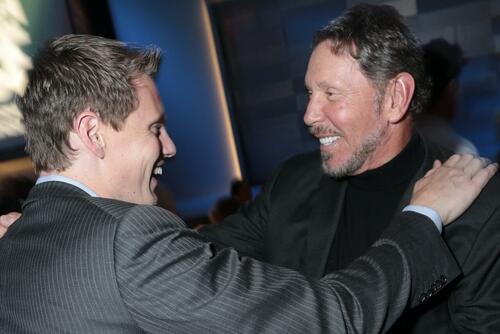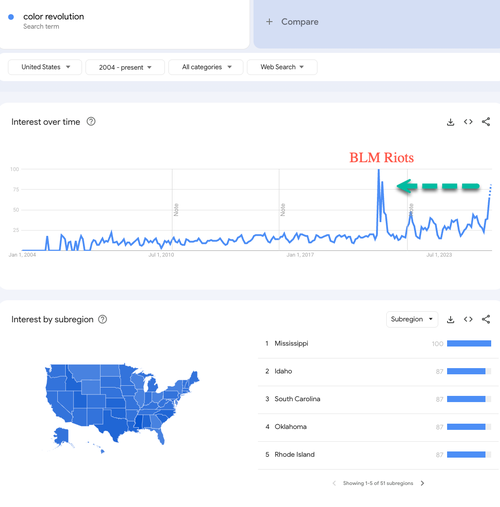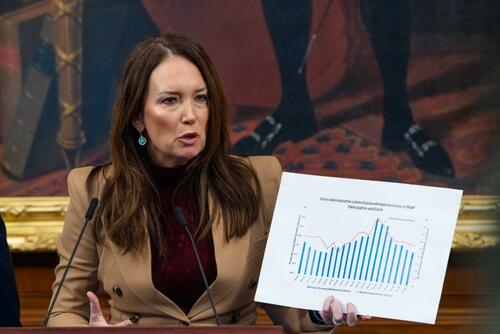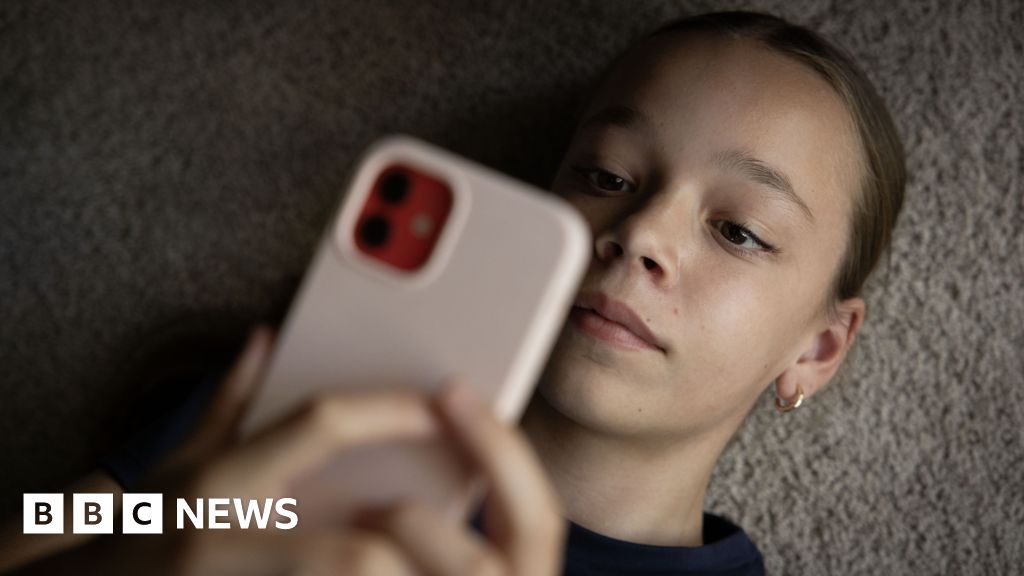(0:00 - 0:24)
Canada is the MAiD capital of the world. Educated estimates say that since medically assisted suicide was made legal in 2016, MAiD doctors in this country have now killed over 60,000 people. People who go to hospitals for treatment are regularly offered maid as an option, but in reality it is pushed on them and they are pressured to accept it.
(0:25 - 0:46)
In 2027, Track 2 for MAiD will become law. Track 2 will allow MAiD for mental illnesses, people who do not have a medical issue and for whom death is definitely not imminent, up to and including simple depression. And the legislation has already been passed.
(0:47 - 6:55)
Trudeau simply put a hold on implementing it, as he knew it would affect his party's chances in the next election. But those are just the parts they're telling you about. They also want to bring in MAiD for our children.
They call them mature minors, but there is no legal minimum age. Two years ago, the president of the Quebec College of Physicians and Surgeons was recording, talking openly about their plans for this, and you will see that clip in this interview. Assisted suicide for our kids and parents will have no say.
It will be done on the opinion of a single doctor. But it gets worse. They also want it for babies, essentially erasing the line for abortion between babies still in the womb and those who have been born.
If you don't believe me, once again, Dr. Louis Hua, the president of CMQ, can be seen openly discussing this in the clip you will see this interview. Angelina Ireland of the Delta Hospice Society has been working hard to raise awareness for this, and to provide people with a sanctuary where they can receive palliative care, free from the threat of being killed by their doctor. She joins me today to explain what is really behind this agenda, and just how cheap human life will become in our country if we don't put a stop to this.
Frances, it's a real pleasure to have you back. I thoroughly enjoyed our first interview on your 2008 book that you're coauthored, Disrobing the Aboriginal Industry, your chapter in the book, Grave Error. And now you have co-produced this absolutely amazing documentary.
But there's a, before we get to the documentary, there's a question I didn't ask you last time. Okay. That I should have, and I'm going to ask you now.
Okay. Because I know that there's a lot of people who've read your book and who will see this documentary, and they're going to think, well, you're attacking Aboriginals, but that's not at all what I got from it. What I get from it is that you're actually trying to help by pointing out that the billions of dollars they're supposedly spent every year to help our Aboriginal peoples, most of that never ends up in their hands.
And so I want you to talk about that for just a minute, about perhaps some of the negative feedback you've gotten from people who don't understand what you're trying to do and what you really are trying to do. Yes. So I think there's a couple of elements to that.
One is the Aboriginal industry, which is largely non-Aboriginal, and certainly was largely non-Aboriginal when we were writing the book in the 2000s, which are mostly lawyers and consultants. So they are the ones who are benefiting from all these transfers. And even if the money does kind of trickle down a little bit to the Aboriginal population, it's in the form of monetary payments, which of course just gets spent on things without addressing any of the underlying conditions.
The other significant factor are what are called neo-tribal elites, which is the Aboriginal leadership, which is not representative of the marginalized Aboriginal population. And it's those leaders who are bought off with all these various Aboriginal industry initiatives. And that is a huge problem too now, as we are discovering with the Kamloops case, is like many Aboriginal leaders involved in various enterprises, which is an extractive kind of element, which again prevents the marginalized members from getting the services that they need to be able to thrive in Canadian society.
But as well, the Aboriginal leadership is now very, very difficult to deal with because they have been bought off for so long and not had any challenge to their position that they are very, very difficult to have any kind of discussion with because they will immediately start making all sorts of accusations of racism and so on, residential school denialism, even at the most basic questions which need to be answered. So we really have to sort of go hard at the Aboriginal leadership because they need to be held accountable, just like the members of the Aboriginal industry need to be held accountable. So that's what we're currently trying to delve into.
Right. Now, I imagine that the money that these Aboriginal leaders get to be bought off, though, that's still a tiny fraction of the billions that So what we've got here is, yes, an industry protecting its interests. Yes.
Yes. It's billions like the legal side is the main one, although the consultants are huge too. So all sorts of people are making money.
I'll just give you one example, which maybe people don't know very much about, which they've probably seen a little bit of, which is these languages, the Aboriginal languages. So Aboriginal languages are pre-literate languages. They don't have a writing system.
There is this thing which is developed by the International Linguistic Association, I think. It's a linguistic kind of area. They developed something in the late 1800s for linguists.
So if you're a linguist and you want to have a sort of an overarching symbols for sounds, that's what it is. So people have probably been noticing this and I'm noticing it more and more now as you'll have various Aboriginal words, which will have sevens and question marks and upside down letters and so on. And the implication is, is that this is the Aboriginal writing system.
(6:55 - 9:04)
So this has to be written in this writing system. This is all done by consultants who are linguists. Aboriginal people can't read the International Phonetic Alphabet.
So what they're putting on these signs is just a few people who learn that. So when you get some kind of Aboriginal supposedly word that's written in an Aboriginal language, which it's not. It's written in the International Phonetic Alphabet and you can't pronounce it.
You don't know what's going on. And so you have to get some kind of instruction on how you're supposed to be pronouncing it. Aboriginal people can't pronounce that either.
So why would you be writing things in these letters that no one knows how to pronounce? Well, it's millions of dollars which are going to these linguists and some Aboriginal leaders who've taken courses in the International Phonetic Alphabet and so on. They're the ones that are getting the money to write all these signs, you know, street signs or signs on buildings or signs or forms that are printed out. And that's money.
That's millions of dollars that is going to that, which should be spent on basic services such as, you know, teaching people to read and write in a language where they will be able to communicate with other people. Housing, which is falling apart, water systems that are contaminated and so on. So this, that, although that's not that's a small part of the billions that are spent on the legal disputes.
All these linguists are making, you know, whatever they make as their per diems to go and write these languages in the International Phonetic Alphabet is just one example of something that makes no sense at all, is very, very segregationist because it means that you can't have people talking to one another. And it doesn't even, even the ordinary Aboriginal person doesn't even know how to pronounce these things because it's not written. That's not, it has nothing to do with the Aboriginal culture, this international phonetic language type of arrangement.
(9:04 - 11:33)
Right. And I want to discuss that in just a minute, but first I'm going to give a little bit of my own testimony to what you've just said about the money not getting to the people who need it. 40 years ago, I was a paramedic and I worked on the Galician Blackfoot Reserve and the conditions are deplorable, just awful.
And you know, if they were getting even a fraction of that money, the conditions would have been much, much better. There've been better sanitation, there would have been better education, there would have been better everything, but they weren't getting that money. So now I want to talk now what you were just talking about with this language, because history technically is what is written down.
And when Europeans ended up here, the native peoples didn't have a written language. Everything was oral. And there's a term you used in your book, and I can't remember, you have to prompt me on this, something knowledge.
Traditional knowledge. Traditional knowledge. Right.
So, but that's just a fancy term for oral history, which we know is very unreliable. Now, my wife is also a history major. She has a degree in history.
And one of the most important things she taught me is that history is written by the victor. So we know that some of the history we have probably isn't reliable, but it's a heck of a lot more reliable than oral tradition. And this is a problem that we're running into now, and we see it in the documentary and in your book, where you're trying to have these discussions with people about what is truth, what really did happen.
And they just keep reverting back to their traditional knowledge, but there's no substantiation for it. This makes the discussion extremely difficult because you as an academic, I as a journalist, we both are invested in finding the truth. For myself, it's because I understand that you cannot have a meaningful dialogue if it's not based upon truth.
So, and this was demonstrated amply in the documentary where your co-producer got some of these people who were actually on the other side, on camera, started asking questions. There was one very revealing portion in the documentary, which I really enjoyed, where you were talking to this woman, where you had given a, the building where you had given a talk, and asking her, well, okay, so, you know, she's calling you a racist. She's saying that everything you're saying is false.
Then you ask her, well, did you read my chapter in Grave Error? No. Turns out she hadn't. Does she have any facts at all? No.
But she decided you were a racist, and that everything you're saying is wrong. And you had several encounters like that in the documentary. Are you not interested in what my arguments are? I know what they are.
(11:33 - 12:34)
Okay, okay, so what are my arguments? I don't need to speak your work back to you. I'm not in a lecture. I'm not your student.
I won't be summarizing your work for you. No, but do you want to be accurate in your, the way you're portraying my work? Do you think that being accurate... You think your work isn't racist. But you think it is? Yes.
So why do you think it's racist? It fully is racist. But what, if you're gonna say that my work is racist, don't you think that you have a responsibility to say why you think it's racist? Not to you. So you think that it's appropriate just to make accusations without any evidence? I mean, there's tons of evidence, but your books are all the evidence I need.
Have you read anything? So what have you read? I've read Grave Error. I've read all your little... Oh, so you've read my work? I've read your books. Okay, so you've read Billy Remembers? No.
(12:35 - 13:11)
That's my work in Grave Error. I don't know Billy Remembers. Okay, so you have not read Grave Error.
I've read Grave Error, but I don't know Billy Remembers. Also, I don't care. I don't want to talk about your work anymore.
I think it's a bunch of bullshit. But if you are not able to even assert what is in that... I don't need to assert anything. But you're claiming you've read Grave Error.
You don't even know what's in Grave Error. Yeah, it's a bunch of BS. I know exactly what's in that book.
But you don't know that my article in there, Billy Remembers. I don't remember it. It wasn't... I don't remember it.











